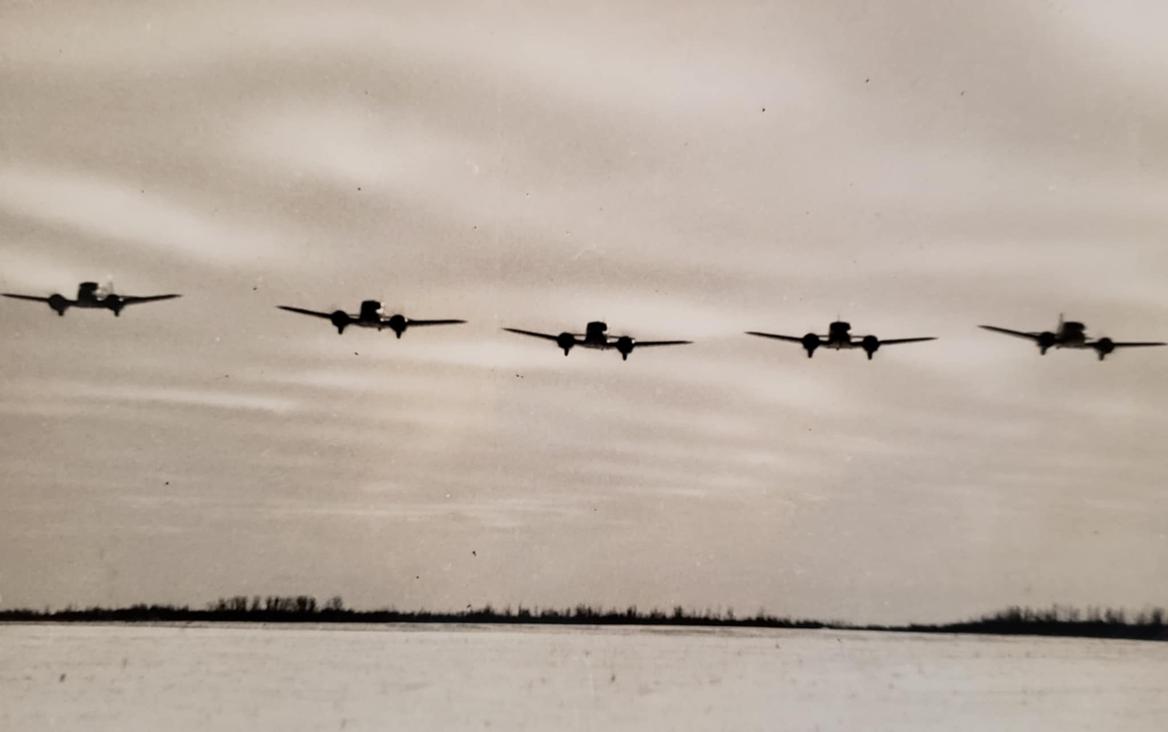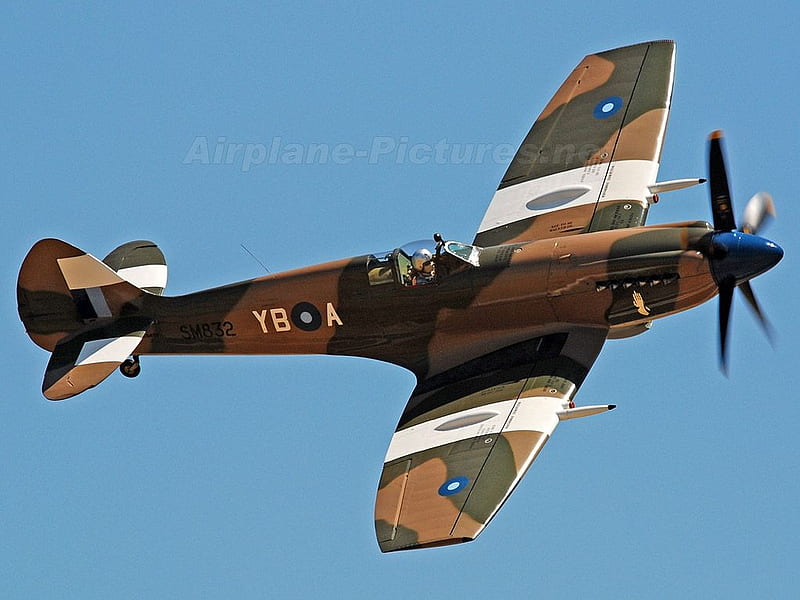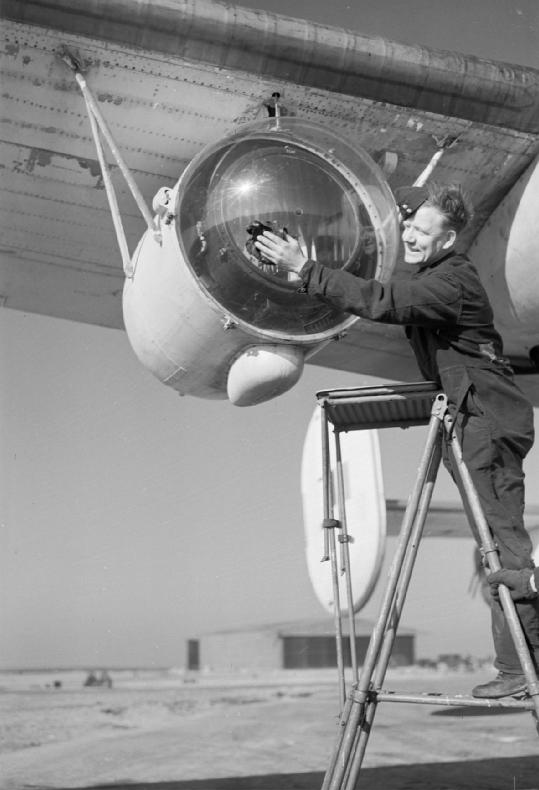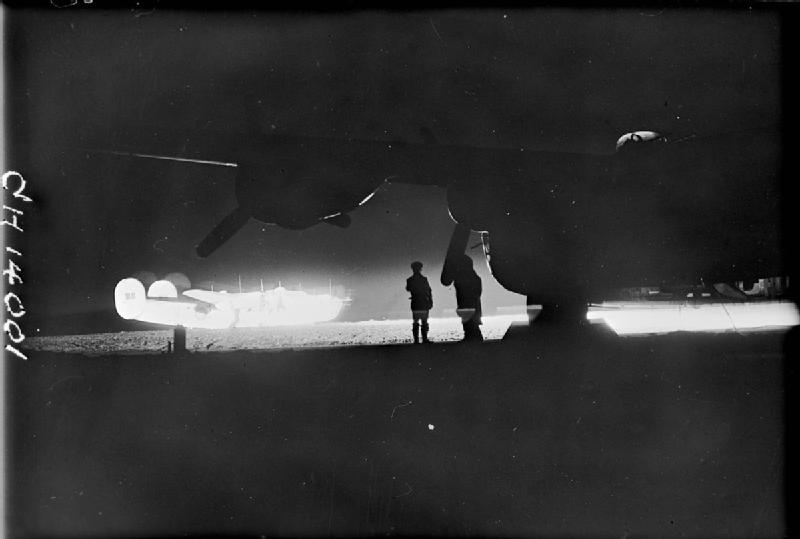
My brother in-law is digitizing a bunch of his Dad's WW2 pictures. Any idea what these aircraft are? I'm guessing Dakotas but they could be Ansons. Dishford Aerodrome North Yorkshire RCAF Bomber Command.
Last one and I hope someone can help identify the two aircraft. It looks to have been taken from the cockpit of a Lancaster. The note on the back of the photo says the planes had search lights mounted in their nose. Any idea why?
Wayslow said:My brother in-law is digitizing a bunch of his Dad's WW2 pictures. Any idea what these aircraft are? I'm guessing Dakotas but they could be Ansons. Dishford Aerodrome North Yorkshire RCAF Bomber Command.
Ansons. The top of the DC-3 is round. The Avro has a flat(er) top.
Wayslow said:Last one and I hope someone can help identify the two aircraft. It looks to have been taken from the cockpit of a Lancaster. The note on the back of the photo says the planes had search lights mounted in their nose. Any idea why?
A-20 Turbinlight.
Appleseed said:Wayslow said:Last one and I hope someone can help identify the two aircraft. It looks to have been taken from the cockpit of a Lancaster. The note on the back of the photo says the planes had search lights mounted in their nose. Any idea why?
A-20 Turbinlight.
I love this place.
Yeah, I couldn't have come up with the name, but I had heard about A-20s modified that way. They were supposed to be spotters for night fighters, but it didn't really work out.

Wayslow said:Note the clipped wings. Pretty common field modification.
A test flight was arranged by the Air Fighting Development Unit at RAF Duxford, comparing a standard wing Spitfire Mk V with the new modified version at various heights up to 25,000 feet. It was discovered that the clipped Spitfire wing made the aircraft 5mph faster at 10,000 feet and slightly faster at 25,000 feet, but with better acceleration across the board. In a dive, the clipped wing aircraft could pull away from the standard version and in a dogfight, the improved roll rate meant it could shake off the pursuing unmodified Spitfire. Climb performance wasn’t affected much and there was no noticeable change to the take-off and landing performance.

The British also used large lights, called Leigh lights on their sub-hunters to supplement the airborne radars. Since German subs pretty much always ran on the surface at night to recharge their batteries they could be spotted on radar, but the radar was ineffective at short range, so they needed a very bright light to pick up the sub when they got close (about 1/2 mile away). The larger light, mounted on Liberators, was 90 million candelas (!).
I believe they also found with these lights that when turned on during the day, it would effectively make the plane invisible at longer ranges (kind of blows out it's silhouette).



In reply to aircooled :
I read that the wingtips were wood framed with an aluminum skin and are held on by two bolts. Lots of squadrons removed the tips and installed a fairing in its place.
Picture is unrelated but is another one my BIL found.

Duke said:
I just assumed I'd be in a Bruce Springsteen lyric the rest of my life. "Huhhoo, hes working haaarddd..."
Henry Rollins
Sometimes I think the market for multi million dollar Porsche resto-mod things is saturated and overdone. But they keep coming out with stunners, and I'm here for it.
Tuthill GT-One:



Wayslow said:Picture is unrelated but is another one my BIL found.
I wanted to comment on this picture of him standing next to the Anson (a popular twin engined trainer). That crank he is holding is the crank starter for the engine (!). WWI era plane could be prop started (spin the prop by hand, yes a bit dangerous). Once the engines got bigger they had to go another way. One way was a cartridge starter (basically a big shotgun shell that kind of rocket bumped the engine over) and the other way was the crank. It wasn't a direct crank though, it was an inertial starter. The crank was heavily geared and connected to a flywheel which would be spun up by the crank and connected to the engine when up to speed, giving a few seconds of turning. Lot's of work, but eventually of course replaced with a high amperage starter (electronics had to do a log of catching up in those days)
There was actually a great example of one in the movie The Great Escape (I think it was James Garners character) when they steal the Me-108 trainer from the German airport.

Here is someone starting an Me-109 with one. This looks to be a G model, so later in the war. Not sure if the 109's went the whole war without starters (!?). This is not a small engine to crank start! DB-605: 35.7 liters and 1,400 hp!
-Transferred-to-Regia-Aeronautica-Mechanic-Starting-to-Crank-Inertial-Engine-Starter-of-Previous-II-Gruppe-Aircraft-with-Italian-Officer-By-Wing-Watching-the-Mechanic-At-Comiso-Sicily-Italy-May-1943-34.jpg&f=1&nofb=1&ipt=623564eb5e141b9c3d946e1845f1927f2478cca557d3e1d791a80dfcbee78327&ipo=images)
Interesting photo. The fellow on the left suspiciously does not look like he is wearing a German uniform. This may be a captured plane, though I would think they would paint over the insignias. The allies did fly captured planes out of Germany late in the war though, so this might be one of them (?)
Too pricey or weird for Cars for sale, BUT you have to see this mid-century modern boat.



You'll need to log in to post.